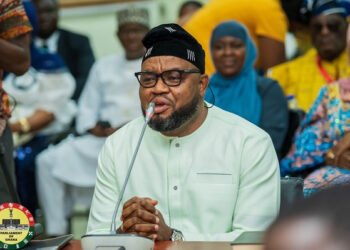President Cyril Ramaphosa has stressed the need for a fundamental transformation and modernisation of the global financial architecture.
According to him, transforming and modernizing the global finance architecture and reforming of the multilateral development banks will make countries fit-for-purpose in supporting Sustainable Development and Just Transitions.
The president addressed this during the twenty seventh session of the United Nations Framework Convention on Climate Change (UNFCCC)’s Sharm el-Sheikh Conference of Parties (COP27).
Representing South Africa at the Summit, he co-chaired the roundtable discussion on Just Transitions and delivering South Africa’s national statement.
He also met some South Africa’s partners such as Germany, France, the European Union, the United States of America and the United Kingdom, on the Just Energy Transition Partnership (JETP).
Ramaphosa presented South Africa’s JETP-Investment Plan whilst indicating that South Africa will need R1.5 trillion dollars in the next five years for implementation. And the money required should be in the form of highly concessional loans and grants.
He also indicated that the government of South Africa will now employ a project manager who will be responsible to implement the JETP-IP as soon as the Presidential Climate Commission concludes its work on stakeholder consultations on the JETP-IP.
The final COP27 outcome reflects the urgency of the climate crisis, and the need to keep the 1.5-degree temperature target alive during what the International Panel on Climate Change (IPCC) calls the “Critical Decade”, including by providing a clear programme to advance the mitigation agenda from now to 2026.
This agreement on a four-year work programme, consists of at least two global dialogues, and a review at the end of the four years on whether to continue the programme (after 2026).
The Mitigation Work Program will cover the IPCC 2006 key emissions sectors and the IPCC WGIII report. There will be an annual decision by the Conference of the Parties to the Paris Agreement (CMA) for the four years.
COP27 also emphasized the need for increased momentum to reform the Multilateral Development Banks and International Financial Institutions and called on the shareholders of these institutions to take decisive action to scale-up climate finance in 2023 and make their institutional arrangements fit for purpose.
There was also agreement amongst Parties to accelerate work on reducing vulnerability of societies due to climate change impacts. While we must acknowledge that from our national perspective, we did not see the advancement on actually operationalizing the Global Goal on Adaptation, we had been hoping for. In particular South Africa had called for a target to increase the resilience of global population by 50% in 2030.
The UNFCCC’s COP27 Climate Conference which opened with the Climate Implementation Summit was convened by His Excellency Abdel Fattah Saeed Hussein Khalil El-Sisi, President of the Arab Republic of Egypt and was attended by countless world leaders.






























































